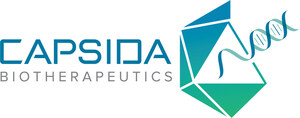Wholly owned first-in-class program anticipated to enter clinical trials in first half of 2025
THOUSAND OAKS, Calif., Oct. 30, 2024 /PRNewswire/ -- Capsida Biotherapeutics ("Capsida") today announced the U.S. Food and Drug Administration (FDA) has granted Orphan Drug Designation (ODD) to Capsida for CAP-002. CAP-002 is the company's lead investigational gene therapy for the treatment of developmental and epileptic encephalopathy (DEE) due to syntaxin-binding protein 1 (STXBP1) mutations. CAP-002 is a novel, first-in-class IV-administered gene therapy using one of Capsida's proprietary engineered capsids designed to achieve brain-wide neuronal expression of the STXBP1 protein while significantly detargeting the liver. CAP-002 is currently in IND-enabling studies.
"FDA's granting Orphan Drug Designation signals the significant potential that CAP-002 demonstrates based upon our preclinical data," said Peter Anastasiou, Chief Executive Officer of Capsida Biotherapeutics. "There are no disease-modifying therapies available for STXBP1 developmental and epileptic encephalopathy and CAP-002 could be the first, bringing hope for patients and families affected by this devastating disorder."
The STXBP1 protein is present in every neuron in the brain and is essential for normal neurotransmission. A mutation in the STXBP1 gene is associated with treatment-resistant seizures, severe developmental delay and intellectual disability, motor abnormalities, and sudden unexpected death in epilepsy (SUDEP). Preclinical pharmacology studies have established the potential to treat and even fully correct the disease through gene supplementation. These studies demonstrated rescue of these neurological phenotypes was dependent on supplementation of STXBP1 in neurons throughout the brain at levels not achievable by wild-type serotypes, such as AAV9. Capsida conducted these studies with a proprietary murine disease model in collaboration with Mingshan Xue, Ph.D., associate professor of neuroscience and molecular and human genetics at Baylor College of Medicine, as well as a member of the Cain Foundation Laboratories and the Duncan Neurological Research Institute at Texas Children's Hospital.
"Receiving Orphan Drug Designation moves us one step closer to our goal of transforming the lives of people living with STXBP1 developmental and epileptic encephalopathy," said Swati Tole, M.D., Chief Medical Officer at Capsida. "We are committed to advancing CAP-002, with our IND filing in the first half of 2025, and bringing novel gene therapies to people with high unmet medical needs."
The FDA's Orphan Drug Designation is intended to encourage the development of treatments for rare diseases, defined as those affecting fewer than 200,000 people in the United States. Orphan Drug Designation may shorten the clinical development path through closer FDA collaboration and potential qualification for expedited development programs. This designation also provides the company with certain benefits, including tax credits for qualified clinical trials, exemption from user fees, and potential seven-year market exclusivity upon FDA approval.
About STXBP1 Developmental and Epileptic Encephalopathy
Developmental and epileptic encephalopathy caused by STXBP1 mutations is estimated to affect up to one in 26,000 children globally. It is associated with treatment resistant seizures, severe developmental delay and intellectual disability, motor abnormalities, and sudden unexpected death in epilepsy (SUDEP). There are no approved treatments.
About Capsida Biotherapeutics
Capsida Biotherapeutics is a fully integrated gene therapy company with a central nervous system (CNS) pipeline consisting of disease modifying and potentially curative treatments for rare and more common diseases across all ages. Capsida's intravenously (IV) administered gene therapies utilize proprietary engineered capsids that enable high transduction levels to desired tissues and cells, while limiting tropism to non-target organs, such as the liver. Capsida has three wholly owned programs, including a potential -first-in-class treatment for STXBP1 developmental and epileptic encephalopathy and a best-in-class treatment Parkinson's disease associated with GBA mutations, both of which are in IND-enabling studies and on track to enter the clinic in the first half of 2025. In addition to its wholly owned programs, the Company has validating CNS partnerships with AbbVie, Lilly, CRISPR Therapeutics, and the AbbVie partnership was expanded to include ophthalmology disorders. Capsida was founded in 2019 by lead investors Versant Ventures and Westlake Village BioPartners and originated from groundbreaking research in the laboratory of Viviana Gradinaru, Ph.D., a neuroscience professor at Caltech. Visit us at www.capsida.com.
SOURCE Capsida Biotherapeutics

WANT YOUR COMPANY'S NEWS FEATURED ON PRNEWSWIRE.COM?
Newsrooms &
Influencers
Digital Media
Outlets
Journalists
Opted In





Share this article